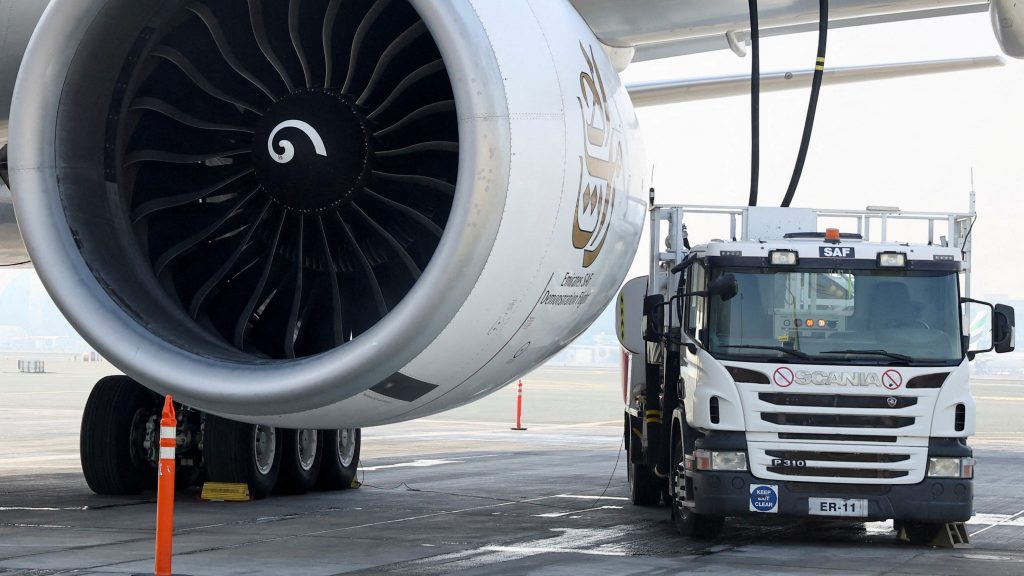Shell To Boost US Green Aviation Fuel Output: Executive

Shell PLC is looking to scale up sustainable aviation fuel (SAF) production in the United States, a country it sees as attractive for development of such low-emission forms of energy, Shell USA president Gretchen Watkins said on Tuesday.
U.S. federal and state legislators have designed an array of tax credits to encourage SAF production. Cutting emissions from aviation is more difficult than in other transportation sectors that have more alternatives to fossil fuels.
Watkins, speaking at the Reuters Events Energy Transition conference in Houston, did not give details of how much more SAF Shell plans to produce and how soon.
Her comments come after Shell Chief Executive Wael Sawan said last month the company would cut at least 15% of the workforce at its low-carbon solutions division and scale back its hydrogen business as part of his drive to boost profits.
SAF is one of the areas in which Shell believes it has a unique competitive advantage, Watkins said, without providing details. The fuel is produced in only small volumes in the United States because of high costs.
The Biden administration issued a challenge in 2021 for industry to supply at least 3 billion gallons of SAF annually by 2030, but key decisions regarding which feedstocks would qualify biofuel producers for tax credits are unresolved.
“There’s a lot of work going on to be able to scale that up,” Watkins said . “We are optimistic that we will be part of that and are working closely with our customers.”
Shell supplies SAF to airlines and other customers across North America, Europe and the Asia Pacific region from pilot programs. SAF can be made from renewable and waste-based sources such as used cooking oil, municipal and agricultural waste.
Most of Shell’s investments in the U.S. will be directed toward oil and gas and the company’s operations in the Gulf of Mexico, where production costs and carbon emissions are lower than in other regions, Watkins said.
“The U.S. is a place where you’ll see us continue to invest significant amounts of capital,” Watkins said.
The production platform for Shell’s Whale deepwater oil project has arrived in Corpus Christi, Texas, and will be installed in the Gulf of Mexico in the coming months, Watkins said. The project is planned to start up in 2024 and is a close replica of Vito, a 100,000-barrels-per-day project that initiated production this year.
(Reporting by Sabrina Valle in Houston and Laura Sanicola in Washington; Editing by Rod Nickel)




